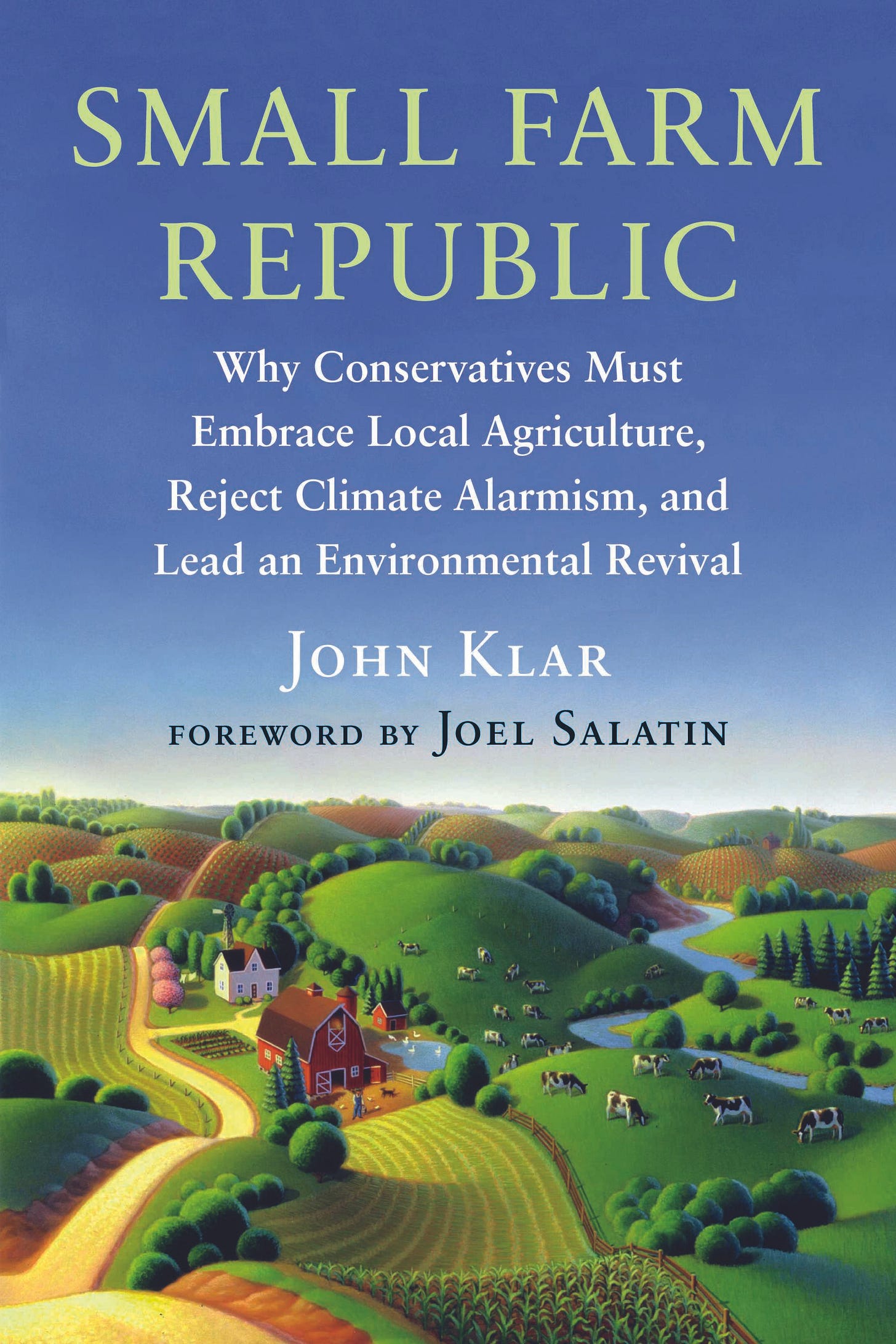I am honored to share my friend John McClaughry’s critique of my book, Small Farm Republic. I would certainly take issue with John’s characterization of my proposals to phase out government subsidies for mono-cultured crops and ethanol, and subsidize regenerative and local agriculture for an interim period, as “the Green New Deal Turned Upside-Down.” Ouch….
Green New Deal faces off against Small Farm Republic
While the subtitle is clearly intended to speak to conservatives, including libertarians and various types of decentralists across the political spectrum, those concerned about Vermont’s future who don’t consider themselves conservatives should read it nonetheless, because the path it charts offers a meeting ground for all but what Klar describes as “carbon cult doomsday advocates.”
From his perspective, America faces an environmental challenge far more immediate and dangerous than any single-minded attack on fossil fuels to reduce global carbon dioxide emissions to stop global temperatures from increasing by another degree or two C by the end of the century.
“Local and regenerative farming practices reverse the climate and soil crises, reverse water depletion, and turn around the economic and cultural decline of rural communities. They reduce harms to human health from chemicals, preservatives, early harvesting (which deprives produce of vital nutrients), antibiotics, hormones, pathogens, nutrition deficiency and so on; lessen inhumane treatment of animals during life and slaughter, and mitigate negative consequences of globalization, including related threats to national security,” he writes.
“They also reduce American dependency on immense industrial producers and processors, ports, distributors, and retailers for food while building public trust in Republicans to offer sincere and effective solutions to observable environmental harms.”
He is a dedicated fan of cattle: “Ruminants comprise an integral link in sustainable agriculture and converting industrial meat production to rotational grass-based methodology is the best single tool to mitigate climate change.”
Klar doesn’t challenge the arguments for addressing climate issues, but he is scathingly critical of the Democrats’ solution of choice, the multi-trillion-dollar Green New Deal.
“The grotesque inadequacies, even counterproductive harms, proposed by the Green New Deal are apparent. Conservatives must lead the charge to fashion methods to counter the destructive profiteering that has dominated food production, and the deteriorating American environmental landscape, for over a hundred increasingly destructive years.”
In a paragraph that really ought to wake up liberals, Klar writes, “The ‘Green Revolution’ was really about selling chemicals, agricultural machinery, and engineered seeds (and plunging farmers into destructive debt), and so is this climate-rescuing spin about peddling solar panels, EVs, and other technologies to which a handful of profiteers will make a quick bundle at the expense of true change.”
That’s certainly grist for a Michael Moore follow-on exposé to “Planet of the Humans.”
Can America, heavily urbanized, possibly revert to adequately feed itself through millions of environmentally sensitive small farms?
“Small Farm Republic” falls short of making a believable case for it. Nor does it explain how millions of people working in America’s vast food creation, processing and distribution system can find other ways to make a living. This former tax lawyer’s policy recommendations, aside from deregulating small farms, tend to resemble the subsidy-ridden, tax credit fueled Green New Deal turned upside down.
That said, Klar’s writing is well informed, lucid and passionate. If it opens the eyes of both conservatives and liberals to the problems inherent in mega-agriculture, his book will become a valuable and timely addition to the works of Wendell Berry and Joel Salatin, both inspirations and enthusiasts for the book.
(Originally published at Vermont Business Magazine.)







While Codex Alimentarius holds sway globally with the industrial food complex controlled by the evil ones, we will continue to be poisoned. Big Ag needs to be replaced.
Maybe the folks in the megapolises will have to eat cricket burgers, but John's vision of small farms in Vermont offers a way toward sustainability for a state of 600,000 people, where even now one can feed a family on the products of neighborhood farms. Not everything - but meat and potatoes, milk and cheese, eggs, vegetables and fruits in season (can or freeze them to last until next harvest). Cheap energy would be a plus, so let the grid work its magic via the market instead of forcing it to accommodate hair pulling wind and solar mandates. These things just clutter the landscape, and for a state that outlawed billboards for the same reason, it seems rather schizoid to deny one but accept the other.